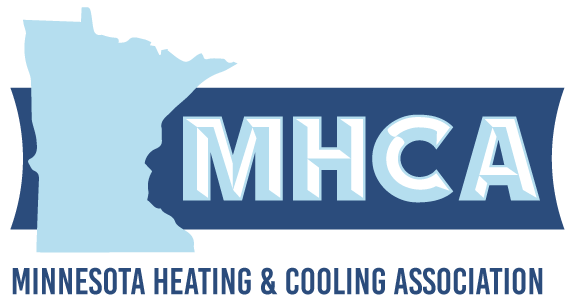Our Mission
The Minnesota Heating & Cooling Association (MHCA)'s mission is to support the elevation of our industry standards to ensure the utmost quality and value for our consumer, our environment, and our employees. We will accomplish this by supporting training and education efforts of all member business, regardless of annual sales or number of employees.
Events Calendar
Check out our Events Calendar and stay up to date with everything happening with the Minnesota Heating & Cooling Association. Check it Out!
May
03Receive Program Updates
If you are interested in receiving information about upcoming MHCA programs and events, please provide us with your email below. MHCA will not provide your email to any others.











